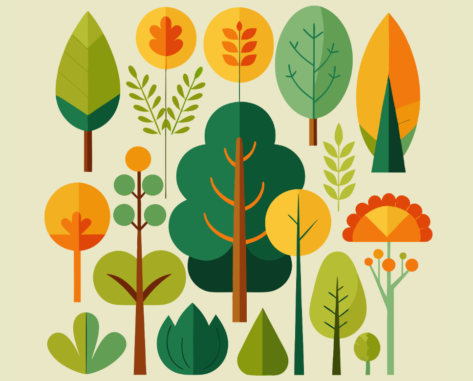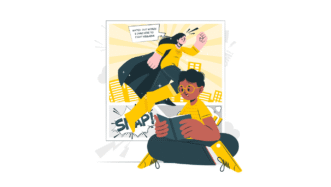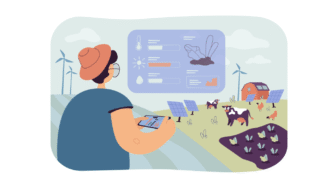LESSON OVERVIEW
The main objectives of this lesson are to:
- practise vocabulary related to agriculture;
- watch a video about forest gardens;
- discuss sustainable agriculture and landscapes.
With this lesson, students talk about landscapes and vegetation types and watch a video about a sustainable food production method. They explore vocabulary related to vegetation and environmental factors in agriculture. Students also discuss the potential of forest gardens for food production, read about the concept of permaculture and talk about challenges and success in permaculture projects.
WARM-UP AND VOCABULARY
This lesson begins with a warm-up. Students look at a word cloud (e.g. desert, rainforest, mountainous area, etc.) and discuss questions about local landscapes and agriculture. Following that, they read descriptions of vegetation types in different climates and say which type of landscape in the word cloud they are most likely about. Next, students look at the texts again and find vocabulary related to agriculture (e.g. climbers, perennials, susceptible to, etc.). Afterwards, they match sentence beginnings with the most suitable endings to create statements about plants, climates, and environmental adaptations. After that, students look at places in pictures (an apple orchard, a mono-crop field and a tea plantation) and discuss questions about vegetation and environmental factors in agriculture. They also use the target vocabulary from the lesson.
VIDEO AND DISCUSSION
At this point in the lesson, students get to practise vocabulary related to agriculture, watch a video about forest gardens and say how they compare to some cultivated landscapes. Afterwards, they finish sentences about the benefits and features of forest gardens according to what they remember from the video. Then, they watch it again and check their ideas. Next, students discuss questions about the potential of forest gardens for food production. Following that, they read about the concept of permaculture and complete gaps with one word each. Finally, students look at the names of two permaculture projects (Greening the Desert Project and Incredible Edible). Based on their names, they make educated guesses about the type of landscape and vegetation each project is associated with and their primary goals. They then discuss questions about the challenges and potential success of those projects in their community.
HOMEWORK/REVISION
This lesson plan also includes an additional task that you can use as homework or revision. In the task, students complete sentences with the target vocabulary from the lesson. Then, they create other sentences using the words in a general context unrelated to plants, vegetation or farming. The task is available in the teacher’s version of the worksheet. You can print it and hand it out to your students. It’s also included in the e-lesson plan.
WORKSHEETS
Subscribe to unlock these and many other Standalone lesson lesson plans with the Unlimited plan
Subscribe











WOnderful lesson! I would love to have this in an A2 – B1 level.
So glad you loved the lesson😊